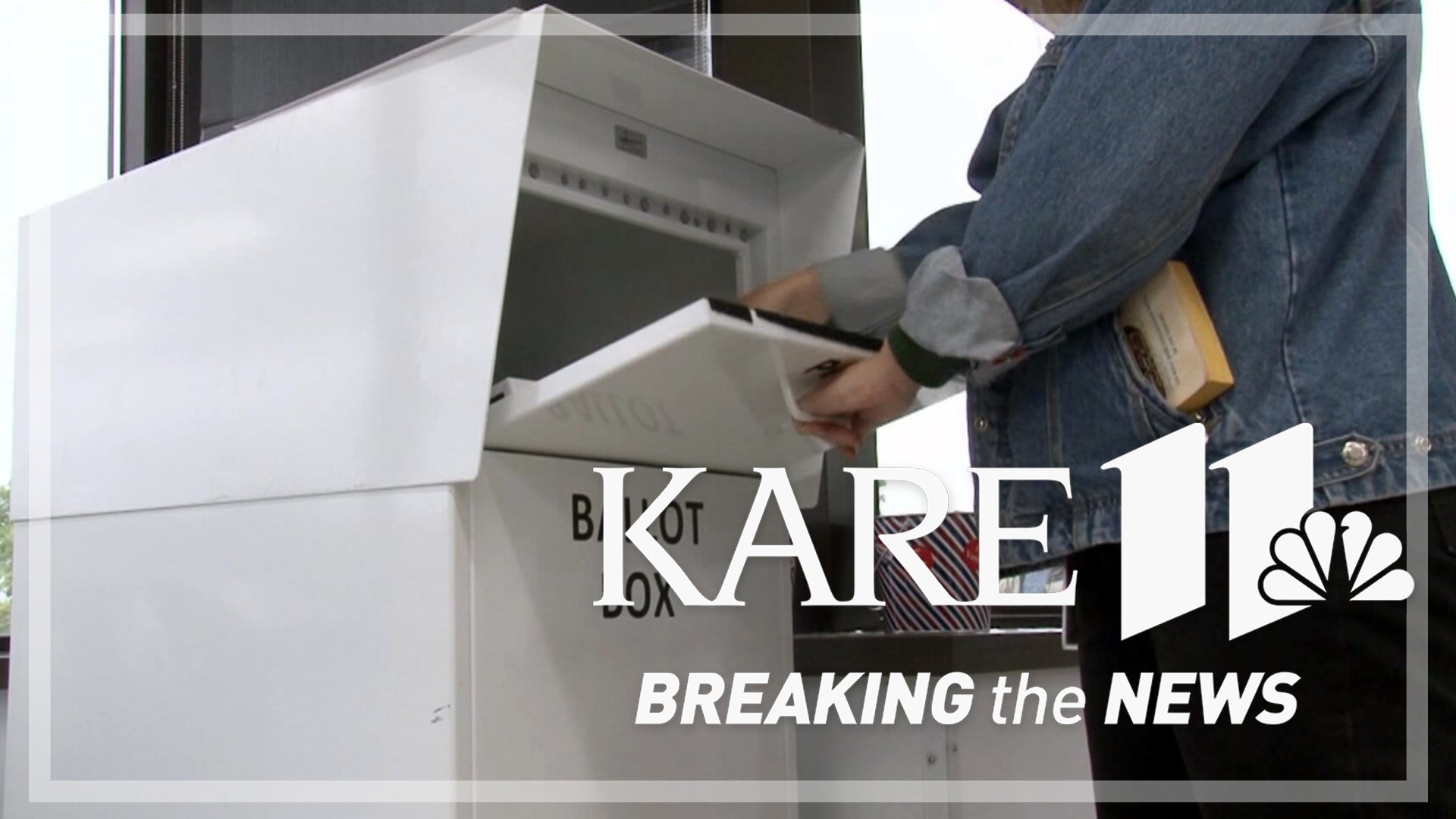ST PAUL, Minn. — Former felony offenders in Minnesota have spent the past month registering to vote, a right they won when the legislature passed the Restore the Vote Act in the 2023 session.
But a lawsuit filed by conservative elections watchdog group seeks to stop the new law in its tracks and leave 50,000-plus potential voters back on the sidelines of the democratic process in the state.
Governor Walz signed the Restore the Vote Act into law March 3, and it went into effect June 1, instantly returned voting rights to Minnesotans who otherwise couldn't take part in elections because they were still on probation or parole for felony offenses.
The Minnesota Voters Alliance is challenging the new law, contending that it violates Article 7, Section 1 of the state constitution. That section bars felony offenders from voting "unless restored to civil rights."
That part of the constitution was written before Minnesota had a system of supervised release, or time served in the community. But the plaintiffs in the lawsuit contend that clause means a person can't vote until they've completed their full sentence, which includes probation.
Republicans in the legislature, while on the losing side of the debate, made similar arguments that being "discharged" by the corrections system doesn't only mean being released from incarceration.
Antonio Williams was one of those who registered to vote June 1, the same the new law went into effect. It marked the first time he could legally register since he was 18 years old, which was 19 years earlier.
"I'm a homeowner, I'm a business owner, I have a child, I need to be able to vote in all of those different areas that affect my life just like any other taxpaying citizen should be able to do," Williams, who heads the local nonprofit TONE UP, told KARE.
"What being able to now vote does for me it makes me able to say, okay, I have a real stake and what I’m seeing it do for other people is the same thing. This is my community."
The plaintiffs' petition points to the Minnesota Supreme Court's decision in Schroeder vs Simon, a lawsuit brought by ACLU client Jennifer Schroeder who was on probation for 40 years. In that ruling, which came before the legislature passed the Restore the Vote Act, the high court ruled it would take an affirmative act by government to restore voting rights.
Rep. Cedrick Frazier, the New Hope Democrat who authored the Restore the Vote Act in the House, said he's disappointed by not surprised by the lawsuit.
"This is nothing more than an attempt to suppress the vote of certain members in our communities across the state. By bringing this lawsuit, MVA is seeking to create confusion and fear among our neighbors who have recently had their voting rights restored," Frazier wrote in a statement sent to the news media.
"It is not lost on me that the previous voter disenfranchisement law had a disproportionate impact on communities of color, particularly African Americans."
The Minnesota Voters Alliance has been active in efforts to end Minnesota's current system of same-day voter registration, and to institute a Voter ID system in the state. The organization has also brought lawsuits challenging the practice of election office staff members being sworn in as members of absentee ballot boards.

